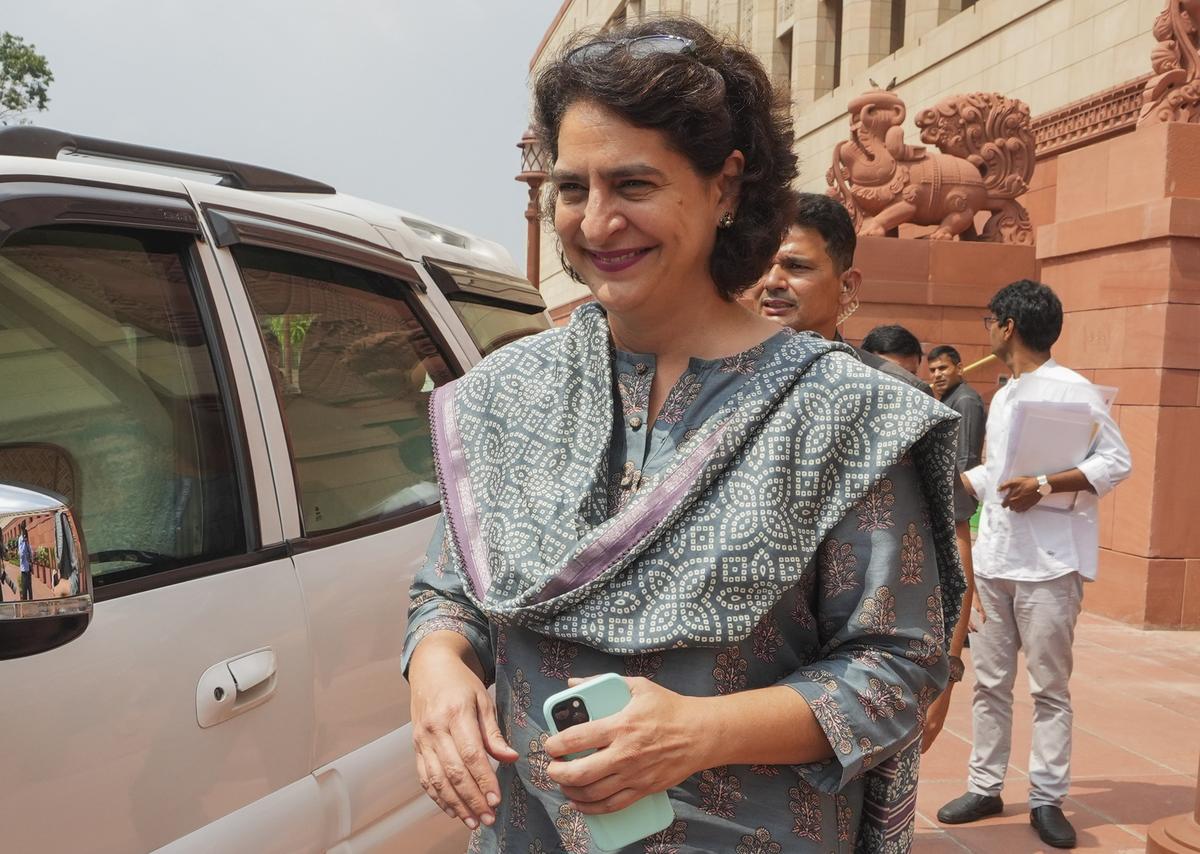
The controversy erupted when Vadra, the Congress leader and the daughter-in-law of the party's interim president Sonia Gandhi, appeared in Parliament carrying a handbag featuring the word "Palestine." The bag quickly became the focal point of a political dispute. BJP lawmakers were quick to condemn her choice, accusing her of sympathizing with the Palestinian cause, a stance seen by many as controversial given the ongoing conflict with Israel.
The BJP's reaction to Vadra’s fashion choice was swift, with party members accusing her of promoting a divisive political message in the heart of India's legislative body. BJP MPs argued that it was inappropriate to display such a symbol in Parliament, a space meant for national discourse and unity. The matter sparked heated exchanges between the two parties, with some BJP leaders even calling for an apology from Vadra, claiming that the bag symbolized an overt political statement.
However, Vadra remained defiant, stating that the protest against her attire was nothing more than an example of patriarchal control over women. "Who is going to decide what clothes I wear now? Who is going to decide that?" she asked, addressing the media. "That's typical patriarchy that you decide what women wear also. I don't subscribe to that. I will wear what I want." Her comments resonated with many who saw the BJP's response as an unwarranted attempt to curb her personal expression.
The political controversy surrounding Vadra’s handbag is part of a broader ongoing debate in India over free speech, individual expression, and the role of women in politics. While some saw the controversy as a trivial matter, others argued that it underscored deeper issues related to gender politics and the control of women's voices. Vadra's remarks came amidst mounting discussions over the rights of women to make their own choices without being subjected to gendered expectations or patriarchal scrutiny.
At the center of this row lies the larger political context of the Palestine-Israel conflict, which has often divided Indian politicians along ideological lines. The display of pro-Palestinian symbols, especially during parliamentary proceedings, has been a contentious issue for several years. The BJP, in particular, has been vocal about its support for Israel, drawing a clear distinction between India's foreign policy and any expressions of solidarity with Palestine. This ideological divide has occasionally spilled over into public forums, with both political parties seeking to assert their stance on international issues like the Israel-Palestine conflict.
Vadra, a prominent Congress leader and a key figure in the party’s political strategy, has long been known for her outspoken nature and her willingness to challenge established norms. Her comments on patriarchy reflect broader concerns about the treatment of women in Indian politics, where female politicians often face scrutiny not just for their policies or ideologies but for their personal choices, including their attire. This phenomenon is not unique to India but is a global issue, where women in politics frequently face disproportionate criticism for their appearance rather than their qualifications or actions.
The incident also touches on larger societal debates around gender and power dynamics. Women in India have been pushing for greater representation and agency, both in the political sphere and in broader societal structures. For many, Vadra’s stance on the issue of patriarchy is an important statement in the ongoing struggle for gender equality. By rejecting the BJP's accusations and asserting her right to personal choice, Vadra has underscored the need for women to define their own identities, free from the constraints of patriarchal expectations.
The BJP's protest over Vadra’s bag also highlights the growing polarization within Indian politics, where small symbols or gestures can quickly become flashpoints for larger ideological battles. The issue has sparked intense debate across the political spectrum, with some of Vadra’s supporters defending her right to wear whatever she chooses, while others criticize her for using her position to make a political statement in Parliament.
